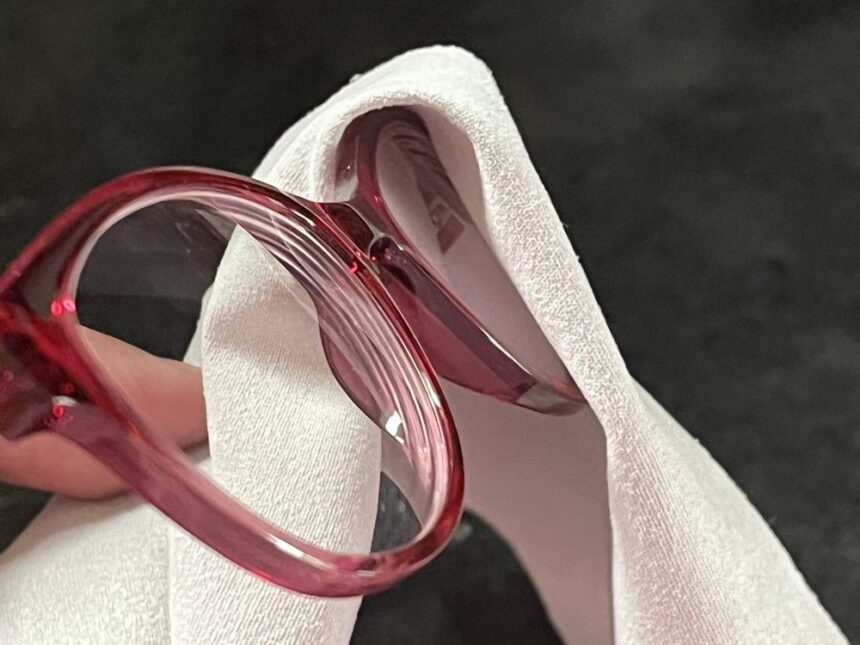Article content3. Use a soft paper towel to dry the lens.Article content4. Apply the mild detergent-based lens cleaning spray, provided by your optometrist, to polish the clean lens with a clean microfibre cloth.Article contentSharkey stressed that trying to clean using a dirty cloth will only transfer the dirt on the fabric back to the lens.Article contentScratches can’t be fixedArticle contentVirginia Brand is an optician and optical manager at Island EyeCare in Sydney, Nova Scotia. Brand stressed protecting the lens coatings during cleaning because scratches are permanent.Article content“I recommend not to rub back and forth on the lens, but to rub from one side to the other, completely across. And that’ll kind of make sure you’re clearing any of the smudges or anything like that off of the lens,” said Brand.Article contentBrand said most lenses sold today are made from different types of plastic. Some are high-index or are more impact-resistant than others.Article contentArticle content Make sure that before you polish the clean lens of your glasses with a microfibre cloth that it’s clean. Otherwise, you’ll transfer the dirt from the cloth back onto your glasses. ContributedArticle contentOptometrist Dr. Carolyn Acorn, of Dr. Burke and Associates in Charlottetown, PEI, said the coatings on lenses sold today will resist dirt better because of improvements in the technology.Article content“There actually are coatings that will resist dirt better,” Acorn said.Article contentBut, Acorn added, “If there is dirt on the lens to start with and you start rubbing it around, then it acts like grit, and you will create scratches on the surface of the lens.”Article contentWhen to replace?Article contentInevitably, no matter what you do to clean your eyeglasses will work and they’ll need to be replaced.Article content“Glasses lenses have a lifespan, and you’re only going to get excellent clarity from them for a certain amount of time,” Acorn said.Article content“And, certainly, the amount of time is going to vary depending on how well you take care of your lenses.”Article contentArticle contentAcorn said knowing the warranty on the lenses is an advantage if you check the lenses for scratches before the warranty expires.Article content“You can usually look at the surface of your lenses just by angling the glasses appropriately in the light. And you can potentially see if there are scratches on it. And if it’s during the warranty period, you can get a replacement set of lenses covered,” she said.Article contentLori King is a manager and optician with Vogue Optical in St. John’s, Newfoundland and Labrador. King said her pro-tip is to have a backup by creating a small kit to carry with you, containing tools to clean your glasses on the run.Article contentKing also recommends including regular checkups to monitor vision health.Article contentDuring checkups, some people want to change their prescription or their glasses for cosmetic reasons. And their lenses may well be scratched.Article content“We always recommend every two years to get a new exam and new glasses, and that has a lot to do with the general health of the eyes,” said King.Article content“And if you go and have your eye health checked regularly every two years, that gives the optometrist a guideline to follow any anything that’s abnormal or any changes in your eyes.”Article contentTo find an optometrist in your province, refer to the website of your provincial optometric association:Article contentArticle contentArticle contentArticle content
Frustrated by eyeglasses that never seem to get clean? Here’s the trick to fix it











